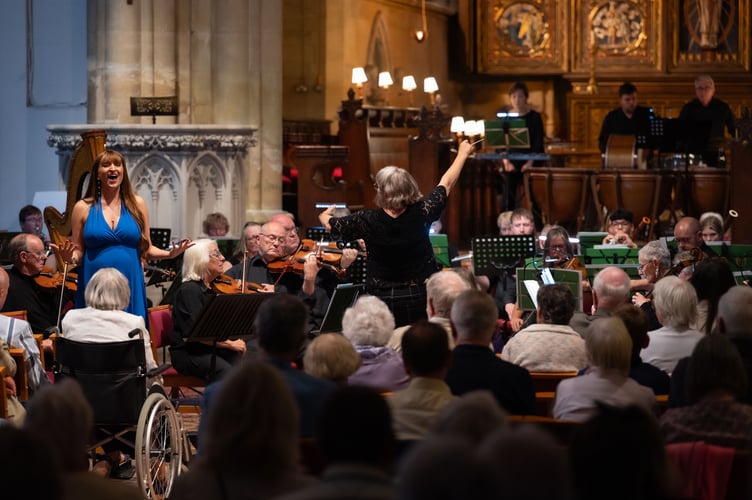On Saturday, July 5 a few people may have shuttled of to Cardiff to watch a couple of grumpy old Mancunians but the rest of us had the absolute privilege of hearing The Royal Forest of Dean Orchestra perform in the atmospheric venue of St Mary’s Priory Church, Chepstow writes Lily Crawley.
The real treat of the evening was the widely renowned voice of Welsh soprano Emilie Parry-Williams in conjunction with the ever-improving local orchestra conducted by Fiona Crawley.
.jpeg?width=752&height=500&crop=752:500)
The orchestra’s concert opened with a statement of intent: Aaron Copland’s Fanfare for the Common Man, bold and expansive with the brass and extended percussion sections rising to the occasion with clarity and poise. Written during the Second World War, but haunted by the legacy of the first, the piece set a resonant tone for the evening, balancing drama, delicacy and depth.
The thread continued through Ralph Vaughan Williams’ Five Variants of Dives and Lazarus, a piece firmly rooted in English folk tradition. The piece unfolded with quiet intensity. The strings played with great sensitivity, allowing a moment of stillness and reflection.

The concert’s programme offered a broad journey through 20th century music, connected by themes of identity, culture and history. Grace Williams’ Fantasia on Welsh Nursery Tunes brought a welcome contrast- playful, vivid and distinctly Welsh in character.
The young oboe section, led by 18 year old Wyedean student Oscar Watts, was particularly impressive here, bringing both a joyful freshness to the piece and orchestra.
Emilie Parry-Williams was the heart of the evening, performing both Strauss’ Four Last Songs and a selection of arias that showcased her remarkable range. She performed Strauss with warmth and control; capturing the sensitivity and reflection of life necessary for these final songs .
.jpeg?width=752&height=500&crop=752:500)
The orchestra, in particular Claire Newman, on the horn harmonised very well with Parry Williams’ vocals. Emilie brought the night to a close by performing five arias in four different languages: French (Bizet, Delibes), Czech (Dvorak), Italian (Puccini) and German (Lehar). Her vocal versatility and expressive clarity were on full display.
The concert showcased a sense of continuity between past and present, between folk traditions and classical forms, between voice and orchestration. If you are a string player and would like to enquire about joining the orchestra, email [email protected]





Comments
This article has no comments yet. Be the first to leave a comment.